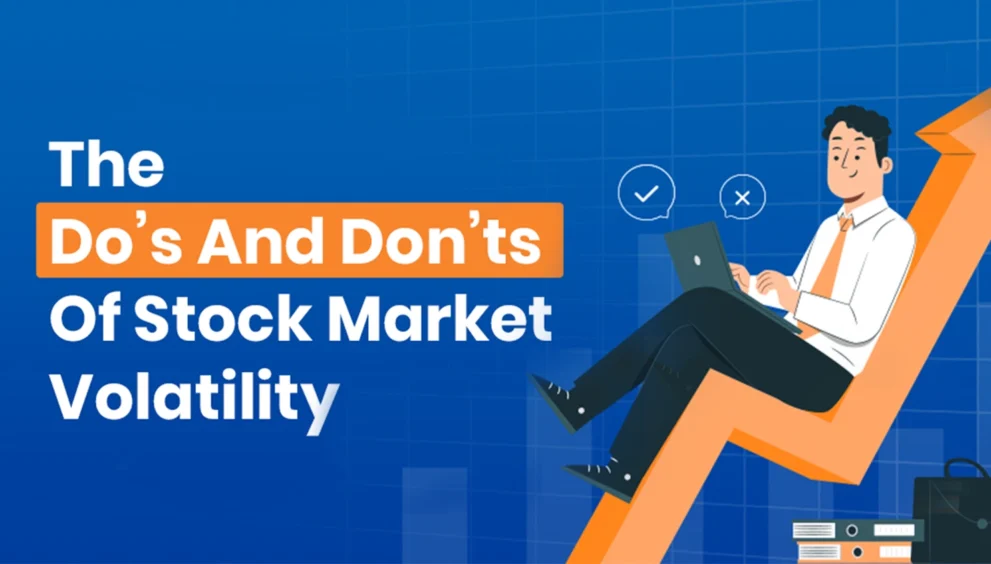Stock Market Volatility- Is It An Emotional Roller-Coaster?
Embrace stock market volatility as part of investing and the daily reality of the market. Volatility illustrates the rate at which the asset price changes over a certain period. If the stock price remains relatively stable, it is low volatility. High volatility indicates quick and extreme fluctuations in stock prices. There will be a snappy rise or dramatic fall in stock prices within fractions of a second. Typically, volatility is a result driven by various factors, including investors’ reactions toward the stock market, economic factors, and companies’ performance.
Volatility Creates an Emotional Roller Coaster
Investors are not supposed to factor in emotions at all, or at least they should try to keep their emotions at bay. But it is tough during a highly volatile market. There is a direct relationship between volatility and human behaviour. Ups and downs during a highly volatile stock market can leave investors confused and depressed and lead to wrong decisions.
During a rise in the stock market, there is a rise in demat account online opening as investors feel confident. They expect prices to continue to rise. But, what goes up will go down or vice versa. Fallen markets make investors scared and fearful. Unfortunately, the emotions of hopelessness and fear may drive investors to sell off their securities at market lows inappropriately.
How to Deal with Volatility
The point of volatility has high relevance in the current market. Once investors accept that volatility is a companion of their investment journey, it helps them to focus on how to deal with it for profitability.
Look at the Base of Volatility
An economic affair, good or bad releases about companies, unexpected earnings results, IPO news, or even a recommendation by a famed analyst can create an imbalance in trade orders. There may be all buys and no-sells or vice versa. Sometimes institutional investors may cause asset volatility. Therefore, it is necessary that one verify the base of volatility before acting.
Volatility and Long-term Investing
Promising Stocks: Individuals can approach a volatile stock market with a long-term investment strategy. Companies with robust fundamentals can sustain in the volatile market with profitability. They can invest in fundamentally strong companies for the long term, considering the historical assumption that the market will go up and will be favorable as soon as the stock markets rise over time. Therefore, investors with a long-term perspective consider investing in promising stocks when they are available at low prices, i.e. during a fallen market.
Timing the market is difficult: Almost everyone, even professionals, avoids timing the market. When investors try to ‘time the market, they may get to high-risk exposure due to buying high and selling low. The situation further worsens and increases the losses during volatility. Therefore, individuals focus on long-term investments instead of timing the market and bearing losses. Volatility can help investors to grab opportunities to invest in a growing company and wait for cumulative growth over the long term.
Volatility and Short-term Trading
Active traders take multiple positions frequently within a share trading session and they need to watch the asset price changes every second. They can take advantage of even fluctuations in the market at a point in time. No price fluctuations mean no profit in intraday trading. Swing traders take positions for slightly a longer time frame, days or weeks, but they also need volatility in the market. Short-trading traders can find myriad low-cost and lucrative stocks to trade within a short period. However, they can avoid calls during extremely volatile markets. Indicators like relative index, strength, and volume can be used to find potential profit points for a position.
The Closing
In the end, investors should sway emotions and stay invested with a long-term perspective even during a volatile market. They can reconsider their investment portfolios and sell a part to reinvest funds in reasonably priced securities considering potential growth. Every investors need to know about basic concepts about online trading and offline trading. you should do research about stock market for better understanding. Avoid the social media tips and tricks to use for better profit. It will be harmful to you and make it bad experience for your investment. I hope this article will be helpful to you.






